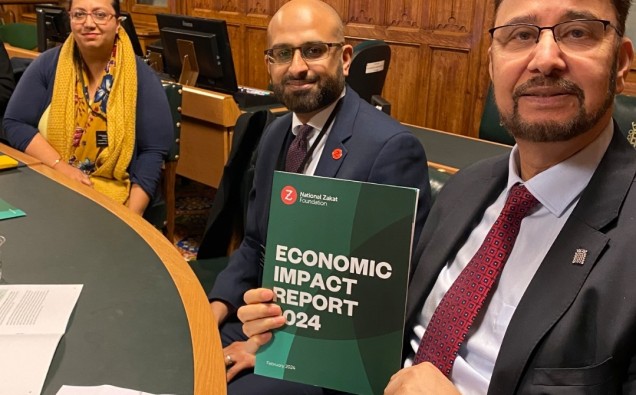Homelessness has penetrated the social fabric of the UK, as 1 in 100 households in the UK are experiencing ‘core homelessness’.
UK charity, National Zakat Foundation (NZF), which provides financial support to Muslims across the UK through Zakat distribution, has released a new Economic Impact report showing how local Zakat is saving cash-strapped local authorities millions of pounds with intervention in tackling homelessness.
The charity briefed senior politicians in Parliament last week on their first economic evaluation of Zakat distributed through its Housing Fund, written with the assistance of the University of Indiana’s Lilly Family School of Philanthropy.
The disbursement of £376,523 by NZF in the year 2022-2023 to applicants in rent arrears and at immediate risk of homelessness has rescued families and individuals from the streets or temporary accommodation.
The reports key findings explain that the economic cost of homelessness if those helped had subsequently been made homeless is £28.8 million (calculated per person) or £7.7 million (if calculated per household) per annum.
Therefore, for every £1 of Zakat money distributed through the UK Housing Fund to keep families in their homes, £73 is saved by local authorities and other agencies.
The Homelessness Reduction Act 2017 mandates councils to intervene promptly to address housing insecurity and extend aid to those who are without a home or are at the edge of being rendered homeless. The government holds local authorities responsible for the provision of temporary accommodation to those who have the status of being homeless.
UK Local Authorities spent £1.74 billion in the year March 2022-March 2023 – an increase of 9% on the previous year.
The impact of this investment has therefore been enormous. With the use of temporary accommodation forecast to double across England in two decades this is money that would otherwise have to be found by central and, particularly, local government.
Applications to NZF have risen 200% in two years with demand outstripping supply. The risk of a homeless crisis amongst many unseen vulnerable Muslim families currently supported by NZF is very high. The parlous financial state of many UK local authorities is likely to further impact the most vulnerable in our communities.
Birmingham City Council recently announced £300 million of budget cuts, while on March 1st NZF received close to 3000 applications for help in just one day.
Dr Sohail Hanif, CEO of NZF, said “These findings demonstrate the true power of local Zakat giving. By capturing the huge economic and social benefit of the work of just one of our funds we can work more closely with government and other charity partners to intervene earlier and help families build a better life.”
“With the devastating cuts to council services, such as those we’ve already seen in Birmingham, the risk to our community’s poorest and most vulnerable is stark. Thousands of Muslims across the UK are threatened with life in temporary accommodation, or at worse, on the streets. Zakat is playing a key role in protecting our community and council services used by all.”
NZF is now planning an assessment of the total economic value of all Zakat collected in the UK, to be presented later this year.
















